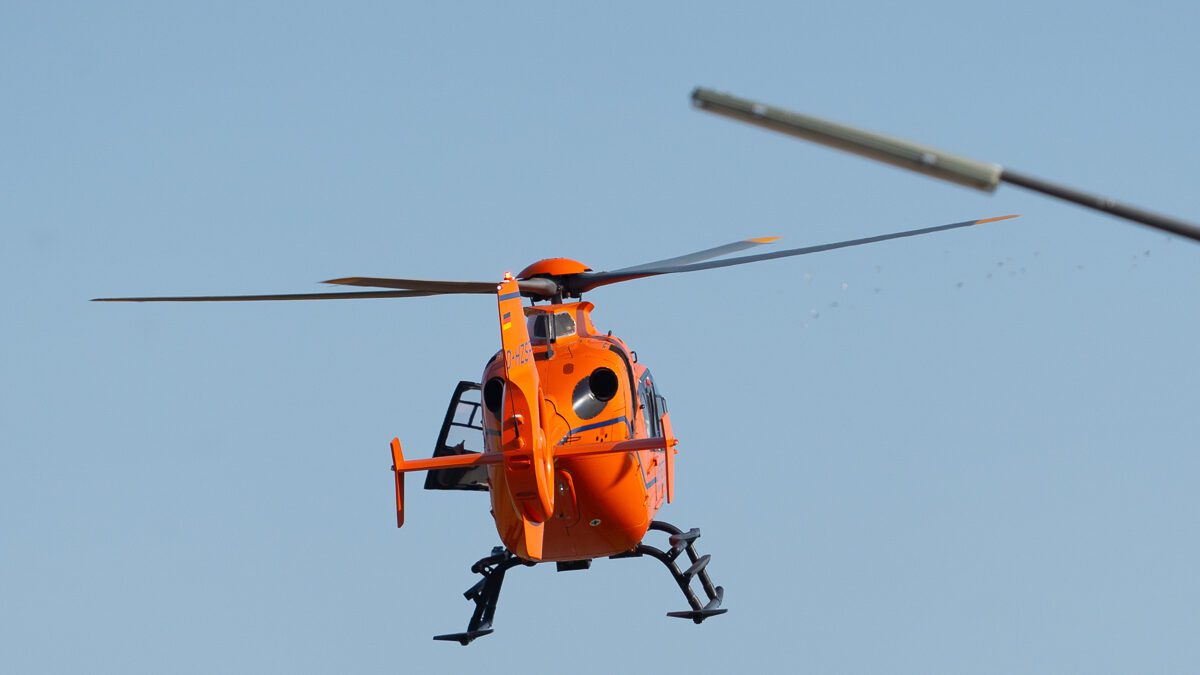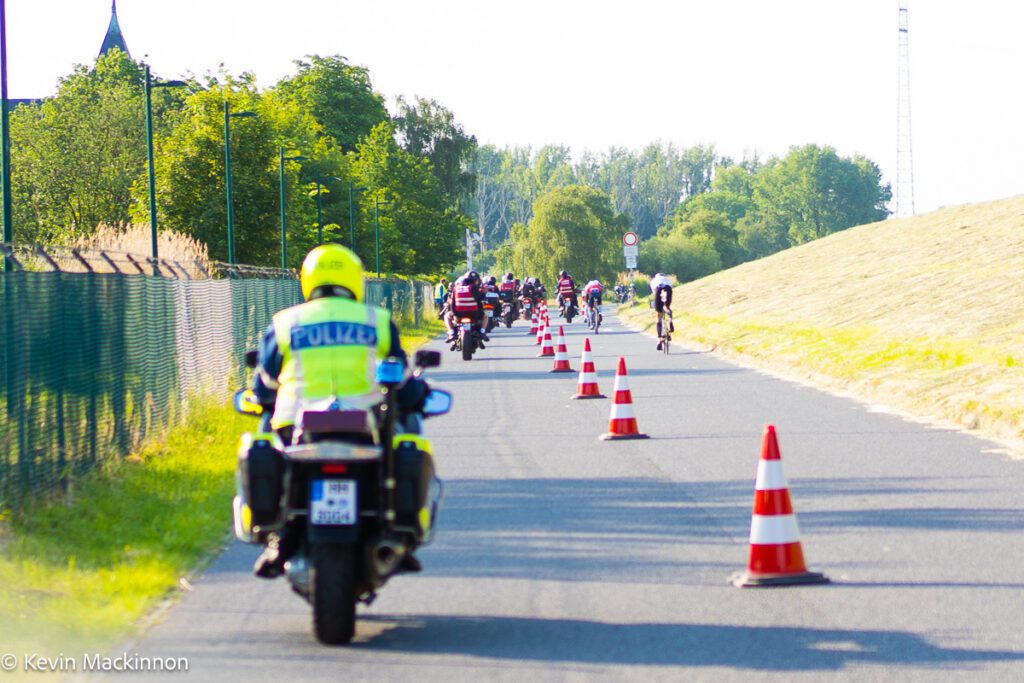Biggest triathlon news stories of 2023: Thoughts on the tragedy in Hamburg
Thoughts on the story that rocked the triathlon world
 Photo by:
Kevin Mackinnon
Photo by:
Kevin Mackinnon
It will go down in history as one of the most eventful years in the short history of triathlon – 2023 certainly offered up lots of big news stories. One story that truly rocked the triathlon world occurred during the Ironman European Championship in Hamburg, when a motorcycle collided with an athlete during the race. Sadly, the motorcycle operator died in the accident.
Motorcycle operator dead after accident at Ironman European Championship in Hamburg
Triathlon Magazine editor Kevin Mackinnon, who was in Hamburg covering the race, wrote about the tragic incident in the July issue of Triathlon Magazine:
The death of a 70-year-old volunteer motorcycle driver at the Ironman European Championship in Hamburg, Germany, shocked the triathlon world. While it’s not the first time there’s been a fatal incident at a triathlon race, this one hit home for a few different reasons. The incident was seen during the live coverage of the race and, as opposed to other deaths that we’ve seen at triathlon events due to health issues or a crash on the bike, this accident was seemingly a preventable one.
To be honest, it’s been difficult to write about this incident. I wasn’t right at the scene when the accident occurred, but was just a few minutes behind. Things had been so chaotic out on the bike course earlier in the day that I’d told my rookie driver that we weren’t going to head back to the bedlam around the front group again – we were just going to find a spot on the road and wait for them to come back.

We arrived on the scene of the crash and were stopped by a couple of police officers. Once I saw athletes were running up the grass bank on the side of the road, I ventured in that direction to see what was going on. Then I saw one of my fellow photographers sitting on the bank with his head between his knees. I went over to see if he was OK, and only then realized that many of the photographers I’ve come to call friends over the years were also on the scene. We were all shell shocked, watching helplessly as the medical crews provided care to the athlete, the cameraman and the motorcycle driver who had been involved in the accident.
As I look back now, the incident illustrates so many of the issues we’re dealing with in the world of media these days. While we were waiting to see how things developed, our phones buzzed with updates from social media. Within minutes one “outlet” had posted a video of the incident, condemning Ironman for what had happened.
Make no mistake, lots of things went wrong that day, and Ironman has a lot to reckon with. But social media posts with one sentence declarations don’t capture any of the nuance or detail that is required to understand such a terrible tragedy. It wasn’t long before the misinformation started appearing online, either. The live German coverage of the race was stopped almost immediately after the incident – “It was the only responsible thing to do,” Ironman world champion Sebastian Kienle, one of the hosts, said after the race. Ironman CEO Andrew Messick admits that Ironman’s coverage of the race should have stopped, too.
Jan Frodeno reflects on tough day at the Ironman European Championship in Hamburg
When I returned to my driver and his bike, he asked what type of motorcycle had been involved in the crash. He hadn’t been able to reach one of his friends, who was also helping at the event. It hit home just how important it is that we don’t jump the gun and report on fatalities before officials have had the opportunity to contact families – people shouldn’t have to hear about the death of a loved one or friend from a tweet or Instagram post. They also shouldn’t be sent into a panic trying to figure out if a friend has been involved in an accident through those same channels. As my phone started buzzing with friends trying to reach me to make sure I was OK, I realized how delicate the balance is – people want to know if everyone is OK, and we need to get that information out as quickly as possible. But it needs to be the right information.
I’d like to think that’s why media outlets like Triathlon Magazine are important. At a time when so much of the coverage of our sport comes from the organizers themselves, it’s important that independent outlets are there to provide insight. I’d also like to think that we’re among the responsible media outlets that do due diligence before we report on something, making sure we check our facts while respecting the ethics of what we’re doing. Sometimes that means holding off and checking with authorities before we report on something.
In an age of instantaneous social media posts, it’s been hard to compete, though. Media outlets are disappearing daily, especially here in North America, as people appear happy to glean their triathlon information via YouTube, Instagram or Twitter. I’m writing to the wrong people, of course. If you’re reading this magazine, you’re already helping us remain relevant and important. Thanks for your support.
After the incident Ironman has revamped its motorcycle plan for race coverage, reducing the number of vehicles out on the course. Challenge Roth followed a similar format this year. We caught up with Ironman CEO Andrew Messick about the events in Hamburg – you can read his take in the link below.
In the story we acknowledged what was obvious to everyone watching the events of the day – there were too many motorcycles on the course, but also acknowledged that Ironman is in a no-win situation when it comes to providing access to coverage.
“In terms of the number of motorcycles out there, it’s obvious that there were too many, certainly on that part of the course” we wrote. “Ironman can’t win when it comes to providing motorcycles at events, though. ‘Media’ requests have gone through the roof over the last few years, with sponsors, influencers, coaches, agents and a host of others clamouring to get out on the course to do coverage. Having witnessed the media folks at Ironman races get berated for not providing motorcycle access, it’s easy to see why, when the event can get lots of motorcycles, they’d look to use those and reduce the headache of getting yelled at.”
As eventual champion Denis Chevrot said after the race, “We need to find solutions” to ensure accidents like this never happen again.
